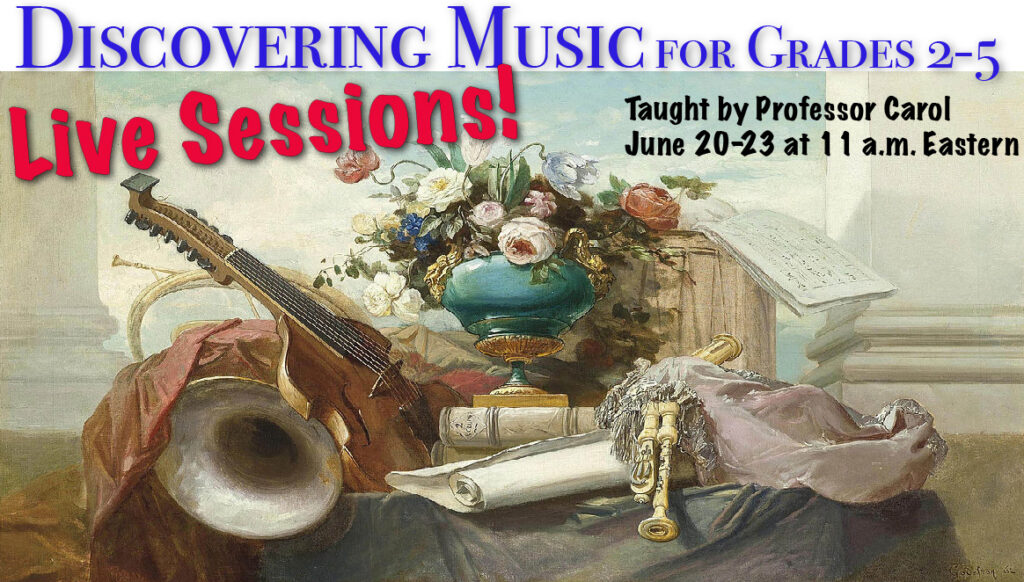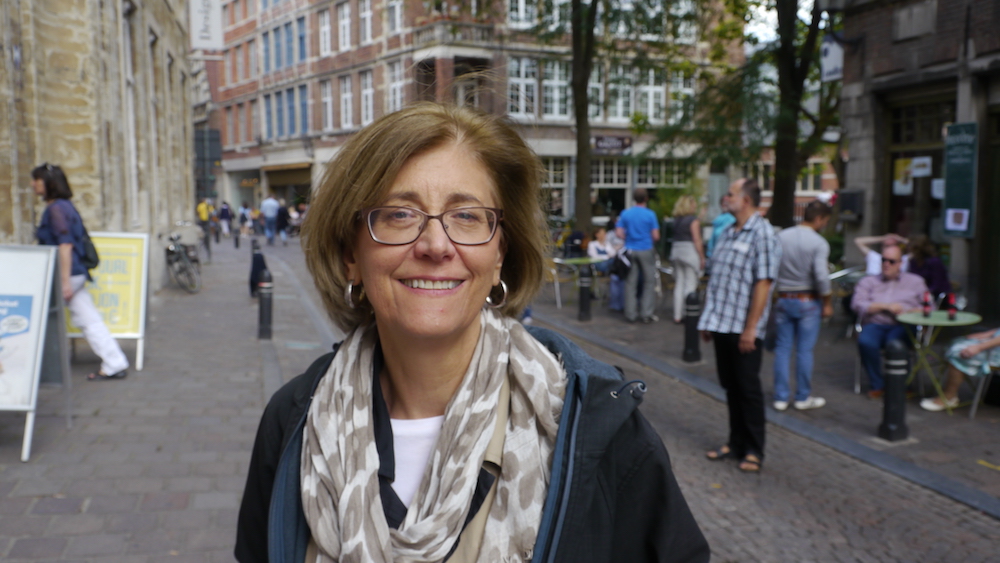
Music is enough for a lifetime, but a lifetime is not enough for music. –Sergei Rachmaninov
Online Sessions Taught by Dr. Carol Reynolds
Music flows naturally from children.
A child’s enthusiastic response to music starts in the earliest stages of life, for little ones sing before they can form words and dance in their strollers before they can walk!
Still, the marvelous inborn capacity of a child to love and express music cries out to be developed consciously, including exposure to more music, discovery of how compositions are made, inquiry into the ways instruments and voices are used, and experience in relating music both to historical events and to all aspects of our human experience.
In this mini-course, we will take on these questions, and others, weaving our answers across the four sessions.

Avenues for Discovery
Where do our instruments come from? How old are they? How many kinds are there (really only 5) and are they the same around the world? What makes instruments sound?
Where do we get the idea of our soprano/alto/tenor/bass voices? Are there other voice types? How (and why) do composers use voices? Does this change over time?
What is the difference between a melody and a theme? What is a motive? How important is melody? What makes a beautiful melody? A memorable melody? Are melodies hard to create? Has our idea of melody stayed the same throughout history?
Class members will enjoy short excerpts of guided listening that can be followed up afterwards.
We will make a Listening Journal to compare performances of a work by different players and singers. Such comparative listening is a terrific way to gain a deeper understanding of music.
Biography of composers is not our main focus, but some facets of a composer’s (or performer’s’) biography can be useful and interesting for us.
Music history is a great way to develop a child’s general sense of history. We’ll take several basic musical principles and develop them across time.
Planning
Format
Each session begins with a one-hour webinar. Then we come back together for a “listening lab,” working through the ideas we covered via one or more compositions.
Materials
No additional materials will be necessary, as everything will be provided through downloads and links.
Age Recommendations
Age recommendation: 2nd graders through 5th graders, although younger students (and older ones, including tutors and parents) may find the sessions equally of interest!
